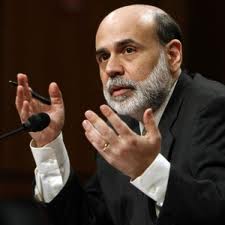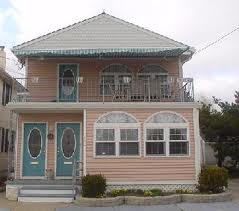No Closing Cost Mortgage Refinance? BUYER BEWARE?
Good or Bad Idea? YOU DECIDE after reading this …
…
St Paul, MN: Mortgage interest rates are currently at historic lows. Your mailbox and the airwaves have become full with mortgage companies competing for your business. Many of these advertisements are for “No Cost” or “No Lender Fee” loans.
 Are No Cost Loans a Deal? For most people, usually not.
Are No Cost Loans a Deal? For most people, usually not.
One of the most confusing areas for consumers in a mortgage loan transaction are closing costs. Here I’ll explain the advantages and disadvantages of the highly advertised “no closing cost” or “low cost “loans.
First and foremost, there is no such thing as a NO Closing Cost Loan! Everyone knows there are costs associated with getting a mortgage loan; appraisal, credit reports, state taxes, county recording fees, title companies fees, lender fees, escrows, and more. Someone has to pay these fees, and it is always YOU. How you pay them is what this article tries to explain.
Homeowners in Minneapolis, St Paul, Madison, Milwaukee, and throughout all of Minnesota and Wisconsin need to understand that in a no lender fee or no closing cost mortgage loan, the lender simply uses “negative” points to offset your costs. In the example below, by having the 5.00% rate (versus the 4.5% rate), you can reduce (or offset through interest rate) $5,000 of closing costs. By choosing this option, it appear as if you saved thousands in closing costs. GREAT! But while lower costs always sounds good, you now have a significantly higher interest rate! OK, now what?
No matter what anyone says, a zero cost, or no lender fee loan is NOT automatically a great deal. Although it may sound so much better than adding thousands in closing fees to your principal balance, you have to analyze each individual loan and client situation to determine the benefits. Many lenders speak highly of the “thousands of dollars” you save in fees. They never discuss the fact that you may spend significantly more in interest over the full life of the loan than you ever saved in up-front closing costs! In the example below, you can pay $12,578 MORE for your no cost loan!
FACT: In a refinance loan, the vast majority of people roll the closing costs into the new loan.
View the following chart, then call us. We’ll run your personal numbers. Then you can decide if a no closing cost home loan is right or wrong for you.
| Deal or No Deal? |
Most Common /
NORMAL |
OK short-term
BAD long-term
Most CommonLow Cost Option |
OK short-term
Very BAD long-term |
|
| Loan Amount |
$205,000 |
$203,000 |
$200,000 |
| Interest Rate |
4.50% |
4.75% |
5.00% |
| Principal & Interest Payment |
$1,038 (+$20) |
$1,058 (+ $45) |
$1,073 (+$60) |
| Closing Costs On Estimate |
$5,000 |
$3,000 |
$0 |
| Out of Pocket Closing Cost Paid |
$0 – all rolled in loan |
$0. $2k in rate, $3k in loan |
$0. $5k in rate |
| Interest Paid over 5 years |
$48,192 |
$50,271 |
$52,054 |
| Interest Paid over 15 years |
$121,743 |
$127,744 |
$133,002 |
| Interest Paid over 30 years |
$172,932 ($373,935) |
$182,215 |
$190,491 ($386,513) |
OK, so you are looking at the math, and maybe say “this isn’t so bad”, especially if you are in the home under 5-years.
But wait, here is a giant “Gotcha”
ANY LENDER who sells the no cost mortgage simultaneously sells a client into becoming a “serial refinancer,” which is not looking out for the client. They are “churning” the client and raking in fees year after year by fooling you into refinancing constantly at “no cost”, but always moving you BACKWARDS into a new 30-year loan. How many times have YOU gone backwards?
Factor in the monthly payments on all those additional “backward years” on all those “no cost” refinances, and that “biggest no brainer in history” no closing cost loan has actually cost you dearly.
Churning of home owner mortgages is illegal in most states
I hope this article has helped you to understand the varied measures used to determine the advantages and disadvantages of zero cost loans. Each borrower is different, and the evaluations must be made on a case-by-case basis. As you can see, there are many factors to consider when looking at the available options. With us as your personal Mortgage Consultants, we will be able to answer all of your questions, outline the costs and benefits, and even give you a few new ones to consider!
While everyone’s individual financial situation varies, let us show you the math so you make the correct choice. Of course, if a zero cost loan makes sense for your case, we will be happy to do one for you.








 Are No Cost Loans a Deal? For most people, usually not.
Are No Cost Loans a Deal? For most people, usually not.
